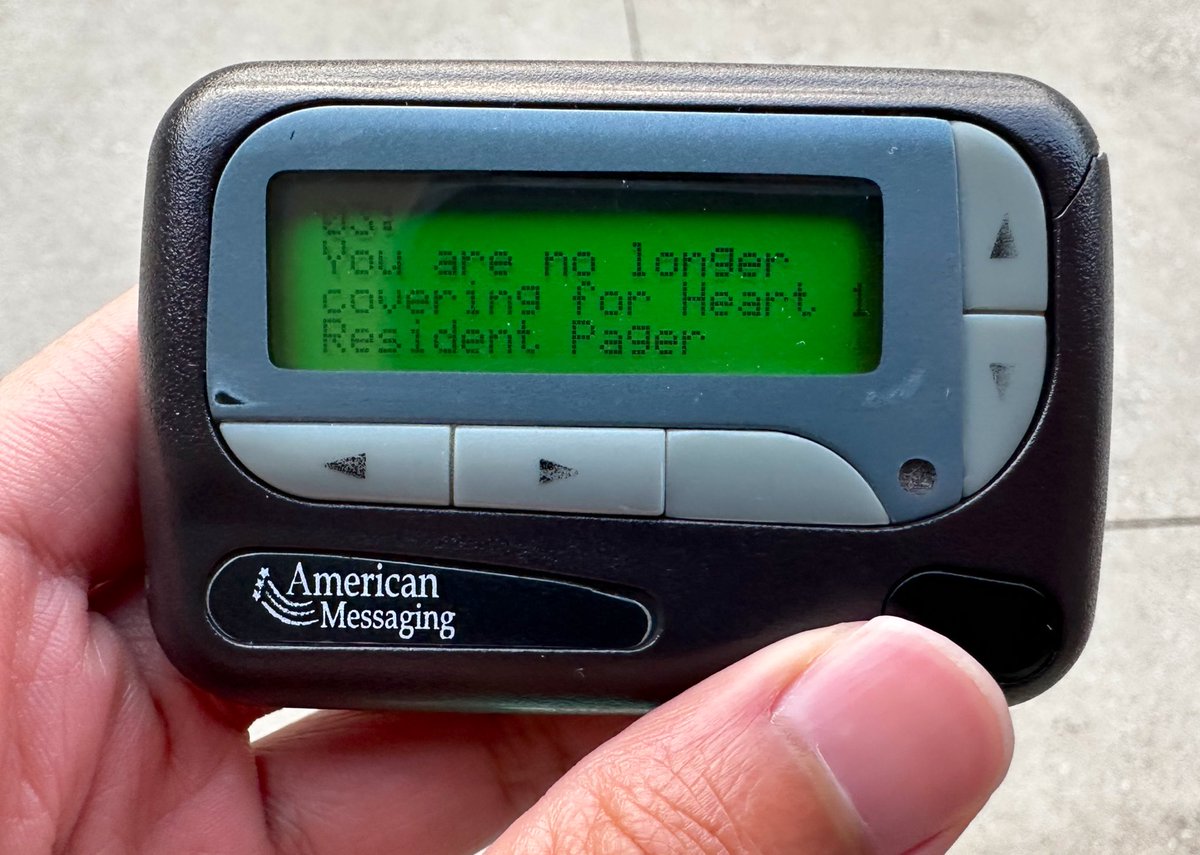Today, I finished my last inpatient shift of internal medicine residency.
Here is a short thread of some of the most important lessons I have learned over the last few years:
#MedTwitter
Here is a short thread of some of the most important lessons I have learned over the last few years:
#MedTwitter

Be kind to others and to yourself. Kindness is a choice and a conscious effort. At the end of a long day, in the midst of high acuity, or when we are overwhelmed, it is EASY to be mean or dismissive (and to beat ourselves up too).
Instead, take a breath and demonstrate grace.
Instead, take a breath and demonstrate grace.
Be humble and remain curious.
This is more important than having “medical knowledge.” Don’t be afraid to ask questions. Biology is complex. Patients don’t obey the textbook. The luxury of being a trainee is that under watchful eyes, we get to learn the practice of medicine.
This is more important than having “medical knowledge.” Don’t be afraid to ask questions. Biology is complex. Patients don’t obey the textbook. The luxury of being a trainee is that under watchful eyes, we get to learn the practice of medicine.
Find balance, hobbies/people who will ground you when you are not in the hospital. See your family and friends. If the ledger of training is reduced to give-and-take, the most precious commodity that will be taken from you is TIME. Spend that which you still have wisely.
There is no substitute for hard work and reps. The downside is that working hard is painful. Who wants to get up early to pre-round on “weekends” or stay late to put in a central line? Do it anyway and you will be surprised at your limitless capacity to learn and grow.
Find your identity in medicine; who do you want to become and more importantly, who do you NOT want to become. Often, we learn this by watching the behaviors of others and reflecting on our own. Be open to change as you learn and grow.
Choose your mentors wisely; openly seek advice and support from those who are more experienced and have demonstrated that they have your best interests at heart. However, know that you are mature enough to have the final word and be the captain of your own ship.
There is a chasm between what training is and what it ought to be. We work long hours for little pay/appreciation, and this will seldom be recognized at work (or even sometimes at home).
If it hurts now, commit to making it better in the future.
If it hurts now, commit to making it better in the future.
Don’t be afraid to seek help if you are struggling. You are human. Secondary trauma is real. Unexpected life events happen. If you are overwhelmed, it is okay to reach out to your program directorate, chiefs, or a trusted mentor. It is their job to help you.
Teaching is one of the best ways to learn. Take care of your medical students/ co-residents. Create an environment where they can use the wards as an extension of the classroom rather than as a stage to “perform” on rounds. Saying “I don’t know” is OKAY and should be expected!
Seek incremental progress. You won’t be “great” at your job right away (or always). On tough days, identify at least one new fact or skill you have learned/refined. Mistakes are part of the process. Debrief. Learn from these moments but be kind and fair to yourself as well.
Get to know your patients and their families, beyond the medical history. Recognizing that your patient loves woodworking or that their oldest kid just won a basketball tournament makes a difference. It may be cliche, but your patients are people first.
Consider participating in medical research. The process of investigation teaches you how to question the status quo, analyze data, and solve problems. Becoming a scientist can make you a better physician.
It is okay to say no.
Do not over-extend yourself with extra-curriculars and multiple research projects. Pick/choose where you will spend your efforts based on your passions. It is better to see one project through to completion than to have several that never reach fruition.
Do not over-extend yourself with extra-curriculars and multiple research projects. Pick/choose where you will spend your efforts based on your passions. It is better to see one project through to completion than to have several that never reach fruition.
Count your blessings; it doesn’t take long in this career to recognize that waking up, walking, talking, thinking, eating, drinking, breathing…the things we routinely take for granted, are all miracles.
Training to become a doctor is incredibly difficult, but it is rewarding. I’ve learned that the gift of life is as fragile as it is awesome, and that people have an unbelievable capacity to care for one another. This keeps me going.
A big shoutout to my wife @ShilpaSridharMD for being my rock, and to my parents and brother for their unremitting support. Thank you to all of my wonderful colleagues and mentors @OSUWexMed and @OhioStateIMRes.
I would not have made it without all of you!
I would not have made it without all of you!
With that, I’ll get back to studying for boards with one final query to #MedTwitter:
What were the most important lessons you learned during residency?
What were the most important lessons you learned during residency?
• • •
Missing some Tweet in this thread? You can try to
force a refresh

 Read on Twitter
Read on Twitter



